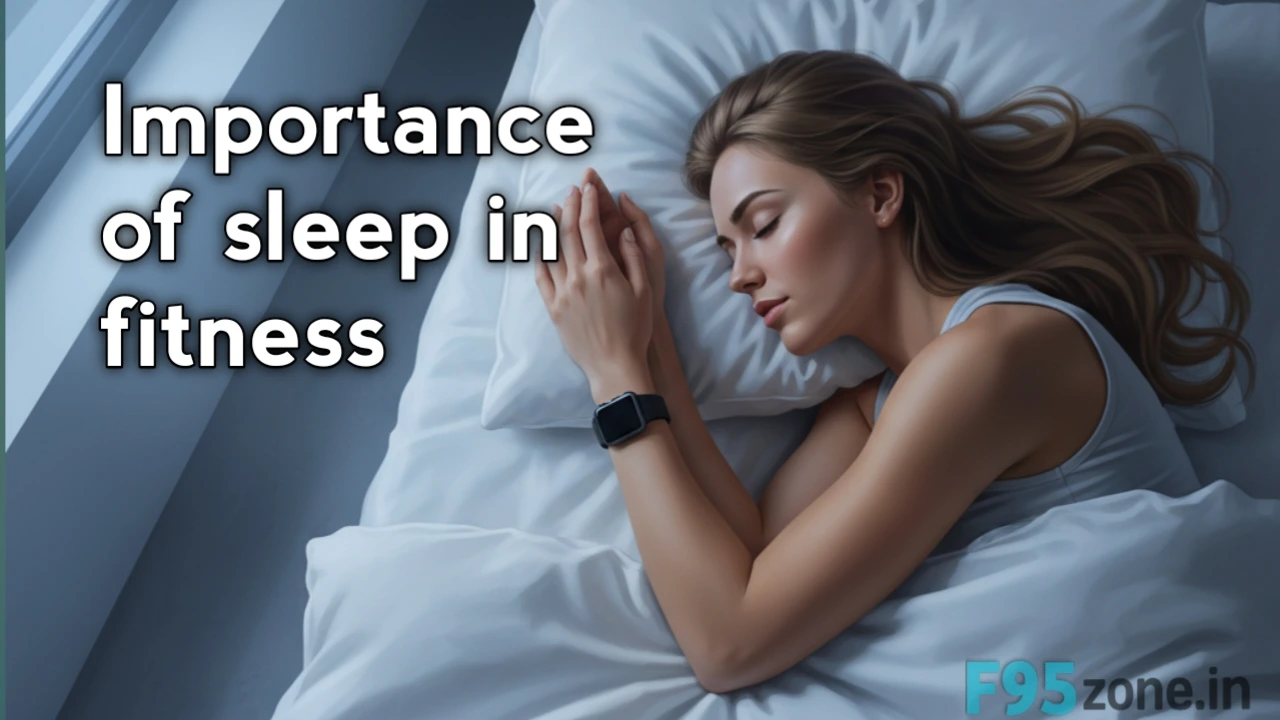When it comes to achieving fitness goals, most people focus on exercise routines, diet, and supplements. However, one critical factor often overlooked is sleep. Adequate sleep is not just about resting—it is a key element in muscle recovery, fat loss, hormone regulation, and overall performance. Without proper rest, even the best workout plan and strictest diet may not deliver desired results. This article explains the importance of sleep in fitness, its benefits, scientific evidence, and practical tips for better sleep.
Why Sleep Matters in Fitness
Sleep is the body’s natural recovery mechanism. During deep sleep cycles, the body repairs tissues, builds muscle, and restores energy. Poor sleep leads to fatigue, reduced motivation, and a higher risk of injuries. For athletes and gym enthusiasts, sleep can be the difference between progress and burnout.
1. Sleep and Muscle Recovery
After intense workouts, muscles experience small tears. Sleep allows the body to repair these micro-tears, leading to stronger and bigger muscles. Growth hormone, which plays a vital role in muscle repair and development, is primarily released during deep sleep stages.
2. Sleep and Weight Loss
Lack of sleep disrupts hunger-regulating hormones—ghrelin and leptin. Poor sleep increases cravings for high-calorie foods, leading to weight gain. On the other hand, quality sleep supports fat metabolism and helps control appetite, making weight loss easier.
3. Sleep and Energy Levels
Energy is essential for high-intensity workouts. Without sufficient sleep, energy levels drop, and endurance decreases. This directly affects workout performance, making it harder to lift heavy, run long distances, or sustain focus during training sessions.
4. Sleep and Mental Focus
Fitness is not just physical—it requires mental focus. Sleep improves concentration, reaction time, and decision-making. Athletes who are well-rested perform better, both physically and mentally, compared to those who are sleep-deprived.
5. Sleep and Injury Prevention
When tired, coordination and focus decline, increasing the chances of mistakes during exercise. Proper sleep strengthens reflexes and reduces the risk of injuries. This is especially important for weightlifting, running, and high-impact sports.
6. The Science of Sleep Cycles
A typical night of sleep includes cycles of light sleep, deep sleep, and REM sleep. Deep sleep is most crucial for physical recovery, while REM sleep benefits brain function and memory. Missing out on either disrupts recovery and overall health.
7. Sleep and Hormonal Balance
Sleep regulates several hormones vital for fitness:
- Growth Hormone: Builds and repairs muscles during deep sleep.
- Cortisol: The stress hormone that rises with sleep deprivation, leading to fat storage.
- Insulin: Poor sleep makes the body insulin-resistant, increasing fat gain risks.
- Testosterone: Adequate sleep supports testosterone, crucial for strength and muscle growth.
8. Sleep and Immune System
Hard training weakens the immune system temporarily. Sleep strengthens immunity, reducing the chances of illness that could disrupt workout consistency.
9. How Many Hours of Sleep Do You Need?
While individual needs vary, most adults require 7–9 hours of sleep per night for optimal fitness results. Athletes may need even more due to high physical demands.
Planning Table: Recommended Sleep Hours by Age & Activity Level
| Age Group | Activity Level | Recommended Sleep Hours |
|---|---|---|
| Teenagers (14–18 years) | Moderate Activity | 8–10 hours |
| Young Adults (18–25 years) | High Activity (Gym/Sports) | 8–9 hours |
| Adults (26–40 years) | Moderate Activity | 7–9 hours |
| Adults (26–40 years) | High Activity | 8–9 hours |
| Older Adults (41–60 years) | Light to Moderate Activity | 7–8 hours |
| Athletes (All Ages) | High Intensity Training | 8–10 hours |
10. Tips for Better Sleep
- Maintain a consistent sleep schedule.
- Create a dark, quiet, and cool sleeping environment.
- Avoid caffeine and heavy meals before bedtime.
- Reduce screen time 1 hour before bed.
- Practice relaxation techniques like meditation or deep breathing.
- Stay physically active during the day for better nighttime rest.
Frequently Asked Questions (FAQs)
1. How does sleep improve muscle growth?
During deep sleep, growth hormone is released, which repairs and builds muscle tissue damaged during workouts.
2. Can poor sleep affect fat loss?
Yes. Sleep deprivation increases cravings for unhealthy food and slows down metabolism, making fat loss harder.
3. Is 6 hours of sleep enough for fitness?
No. Most adults require at least 7–9 hours. Less than 6 hours regularly can harm recovery and performance.
4. Do naps help in recovery?
Short naps (20–30 minutes) can refresh the mind and body, but they cannot replace a full night’s sleep.
5. Why do athletes need more sleep?
Due to high physical demands, athletes require 8–10 hours to allow muscle recovery, energy restoration, and injury prevention.
6. Does sleep improve workout performance?
Yes. Proper rest improves strength, reaction time, endurance, and focus during exercise.
7. How does sleep affect hormones?
Sleep regulates hormones like testosterone, growth hormone, cortisol, and insulin, all critical for fitness progress.
8. Can sleep reduce the risk of injury?
Yes. Adequate rest improves coordination and focus, lowering the chances of workout-related injuries.
9. Is oversleeping bad for fitness?
Yes. Oversleeping may cause lethargy and disrupt metabolism. Balance is important—aim for 7–9 hours consistently.
10. What is the best bedtime for fitness recovery?
Going to bed before midnight and waking up early aligns with natural circadian rhythms, maximizing recovery benefits.
Conclusion
Sleep is one of the most underrated aspects of fitness. It impacts muscle recovery, fat loss, hormone balance, mental focus, and overall health. Without proper rest, progress slows down no matter how intense the workouts or strict the diet. By making sleep a priority, you give your body the chance to heal, grow, and perform at its best. Remember—fitness is 50% training, 30% nutrition, and 20% quality sleep.

